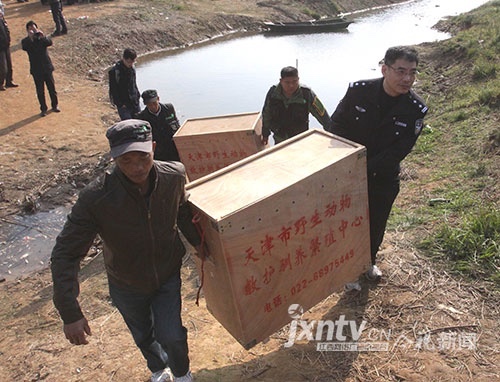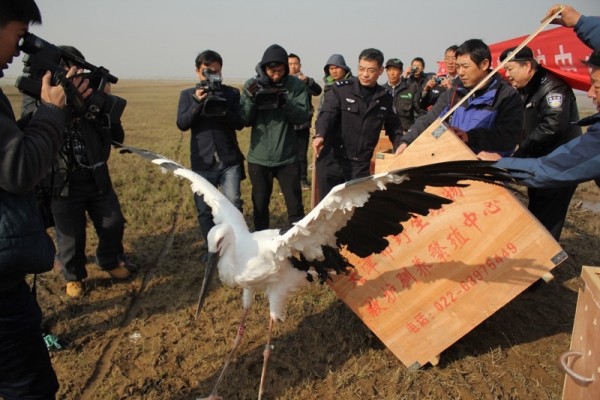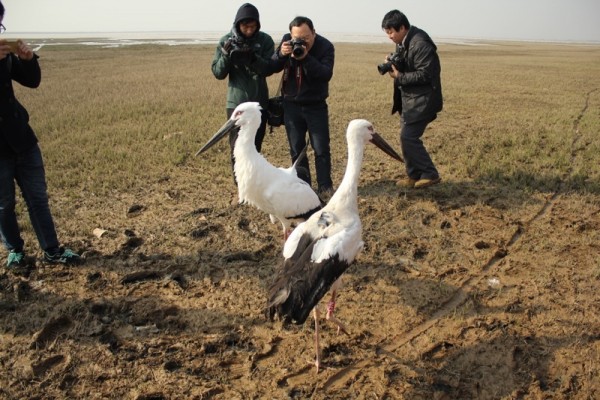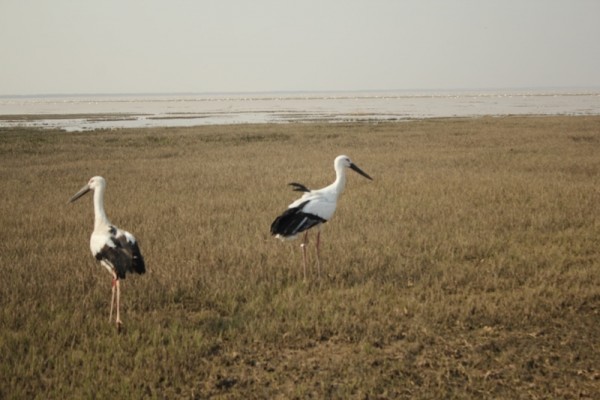
THE LONG JOURNEY After months of coddling two rare Oriental White Stork chicks, which had been abandoned by their parents in the Beidagang wetland in Tianjin, experts at the Tianjin Wildlife Rescue Station determined that they were ready to make it on their own. The wildlife experts crated and shipped the birds down South to the Nanjishan National Nature Reserve in Jiangxi province, where the Oriental Storks traditionally spend the winter months.

RELEASE The two birds, now lanky young adults, must have been mystified (terrified?!) by the gaggle of photographers surrounding them, documenting their journey back into the wild. Note to conservationists: Perhaps those journalists could have been kept a little further back?

FREE AT LAST Shortly after their release, the birds are exploring their new environment, high-stepping through the brown, marshy grasses of the wetland near Poyang Lake, the largest freshwater lake in China. Will they make it on their own? If the wetlands are protected, they will have a good chance.

According to a recent study by Chinese scientists, China’s wetlands provide some $200 billion in eco-services, including clean water. They also mitigate against climate change, protecting coastlands from storms and rising seas. The Paulson Institute is working to ensure that wetlands here, in Tianjin’s Beidagang and elsewhere will continue to provide a home for China’s endangered migratory birds and protection for the people nearby.




